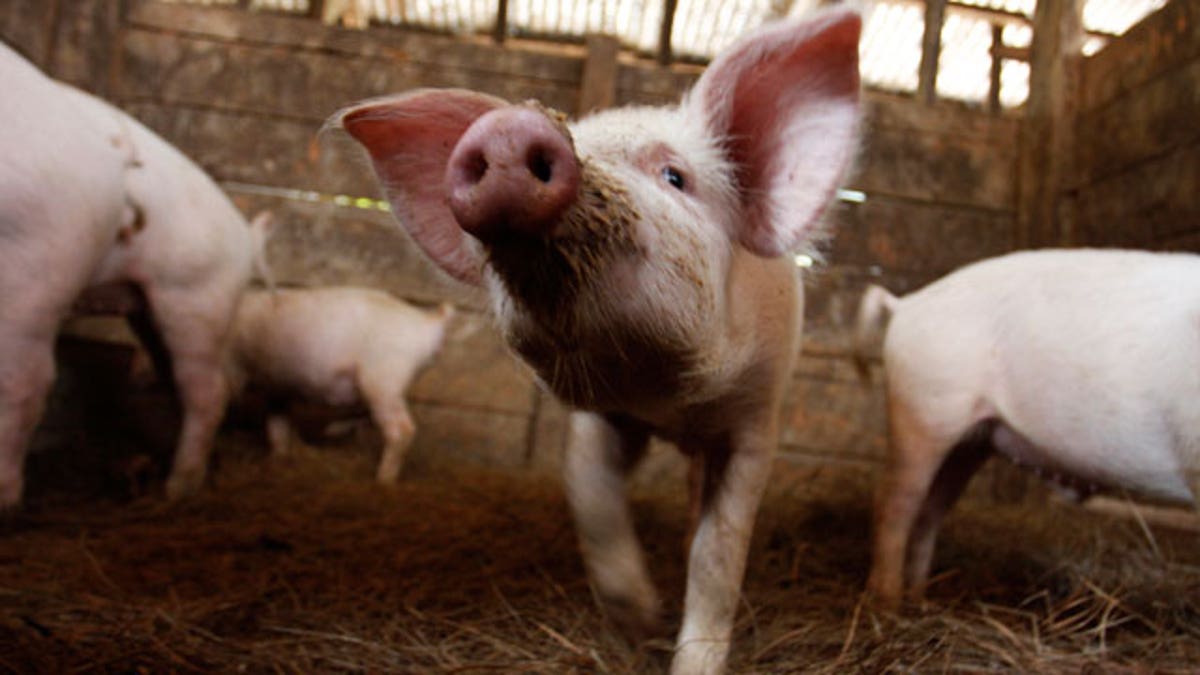
(Reuters)
Despite an uptick in cases of pig to human transmission of an influenza A variant (H3N2v) virus, federal health officials say there is no immediate need to close swine shows at agricultural fairs.
"Because the confirmed cases that we know about have direct exposure to pigs in these settings, we think we have a good strategy to prevent that transmission," said Dr. Joseph Bresee, an influenza expert with the Centers for Disease Control and Prevention.
That strategy includes aggressively screening swine for signs of illness, and urging people to wash their hands before and after contact with pigs and avoid eating or placing fingers near their mouths while visiting animal areas.
On Thursday, the CDC confirmed 145 human cases of H3N2v since July, most of them involving persons exhibiting pigs, their family members, or people visiting fairs where swine are present.
"At this point, there's no evidence of sustained, efficient human to human spread in the community," Bresee said.
Of the 145 cases reported nationally, 113 are in Indiana, 30 in Ohio, one in Hawaii and one in Illinois.
Children appear to be most susceptible to the virus and account for the vast majority of cases. So far, the cases have been generally mild, with most patients exhibiting symptoms similar to seasonal flu and usually recovering on their own.
Two patients required hospitalization, but have since been discharged. There have been no deaths reported in connection with this particular outbreak which began in July.




















